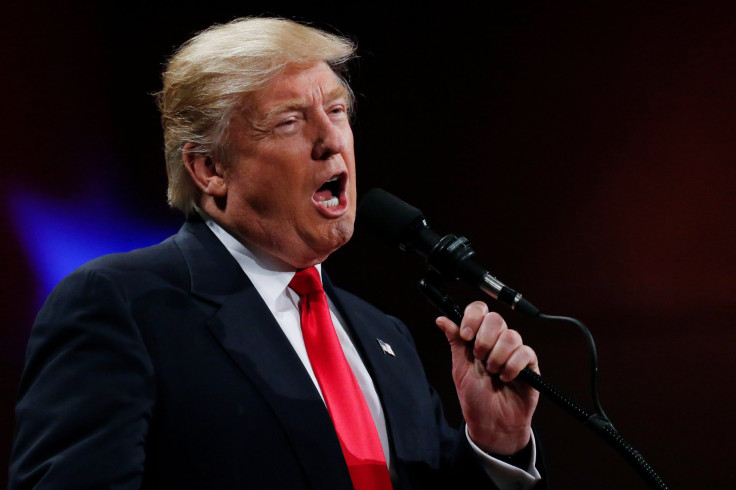How To Stop Donald Trump From Being President: 3 Ways People Are Trying To Keep The Tycoon From The White House

Nothing is certain in this world, and the seemingly impossible is bound to happen every once in a while. There's plenty of evidence of that from 2016 alone: The Chicago Cubs won a World Series, Leicester City finished atop the table in the Premier League despite 5,000-1 odds and, of course, business-tycoon-slash-reality-TV-star Donald Trump is now the president-elect of the United States.
But some voters are hoping for another longshot victory to keep Trump out of the White House, and they're working toward that goal even as the billionaire's frenetic transition into the presidency continued this week. Here's a quick breakdown of some of the methods Americans are considering to stop Trump from taking over as president:
The Recount
While Democratic nominee Hillary Clinton won the popular vote by some 2.7 million votes, Trump earned the presidency through key victories in battleground states. Green Party candidate Jill Stein, however, initiated recounts in three states where the race was close: Michigan, Pennsylvania and Wiconsin. In the extremely unlikely scenario the results were reversed and declared Clinton the winner, the former secretary of state would have 278 electoral votes — enough to clinch the presidency.
The recount in Michigan, though, was stopped this week by a judge, and the results from the effort in Wisconsin have shown very little change in the vote count.
The 25th Amendment
It's long been a topic of discussion, but the 25th Amendment could be used to quickly remove Trump from office. But it would require cooperation from political allies, including the vice president, which makes it seem somewhat unlikely.
The amendment effectively allows for either Congress or the president's cabinet to remove the president from power if he's deemed to be mentally unfit. Either a majority of the cabinet — think people like the secretary of state and secretary of defense — or the majority of both chambers of Congress must agree on the decision. And even if a majority of Congress votes to remove Trump from office, he would be allowed to appeal and Congress would, in turn, need to have a two-thirds majority to oust him. In both instances, the vice president has to go along with the move, though, and Vice President-elect Mike Pence has thus far proven loyal to Trump.
The So-Called Hamilton Electors (The Electoral College)
Electors are the folks who actually vote for the president, thanks to the Electoral College system. Electors nearly always vote in accordance with the will of the people, but in some states they aren't legally required to do so. Voting against the candidate chosen by the people is called being a "faithless elector."
Two Democratic Colorado electors — who have named themselves the so-called "Hamilton electors" in honor of Alexander Hamilton, who famously argued for the Electoral College system — are trying to get enough people onboard to vote for a conventional Republican instead of Trump. It's unlikely they'll succeed because they need to convince 37 Republican electors in order to push Trump below the 270 electoral votes needed to get the presidency. So far, just one Republican elector has indicated he won't vote for Trump, writing in an opinion piece that the president-elect "shows daily he is not qualified for the office."
1st question Hamilton posed to Electors: Is the candidate fundamentally qualified to be President? RT if you think Trump is not. pic.twitter.com/HAs3tI94et
— Hamilton Electors (@HamiltonElector) December 1, 2016
If the Hamilton electors' plan somehow worked, the House of Representatives, which is controlled by the GOP, would then decide who was the next president. They could then simply just choose Trump. The hope of the Hamilton electors seems to be that, presented the opportunity, conventional Republicans would choose a conventional GOP president instead of Trump, who has railed against Washington elites and isn't wedded to traditional right-wing ideas.
One such conventional Republican whose name had been floated was Ohio Gov. John Kasich, who had proven willing to speak out against Trump during the campaign. But Kasich has already told electors not to vote for him.
"I am not a candidate for president and ask that electors not vote for me when they gather later this month," he said in a statement. "Our country had an election, and Donald Trump won."
© Copyright IBTimes 2024. All rights reserved.












